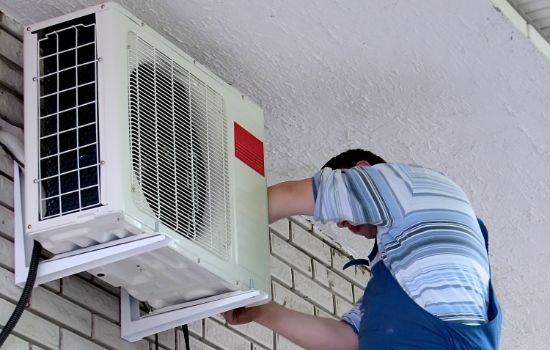Picking the best HVAC contractor is a crucial step in ensuring your home's heating and cooling systems work efficiently and effectively. Whether putting in a brand new system, replacing an outdated one, or just maintaining your current setup, the contractor you decide on can make all the difference. With so many alternatives available, it can be daunting to find a capable professional who fulfills your specific needs.
In this guide, we will lead you through key factors to aid you select the ideal HVAC contractor for your home. From comprehending what HVAC systems are to realizing the importance of indoor air quality, you will gain insights into how to arrive at informed decisions. Furthermore, we will examine common HVAC challenges and their solutions, seasonal maintenance advice, and how to maximize your system's efficiency, all of which are vital components to evaluate when assessing potential contractors.
Grasping HVAC
Heating, Ventilation, and Air Conditioning represents Heating, Ventilation, and Air Conditioning. It is the technology used for the system used to regulate the indoor conditions of domestic and industrial spaces. An Heating, Ventilation, and Air Conditioning unit is created to provide a pleasant atmosphere by controlling warmth, humidity, and indoor air quality, making it vital for preserving a wholesome and pleasant space. Understanding the elements of heating, ventilation, and air conditioning systems helps property owners and companies make informed determinations about setup, service, and improvements.
The key elements of an HVAC setup are comprised of a furnace or boiler for heating, an air conditioning unit for air cooling, and ventilation systems for air circulation and filtering. These components function collectively to guarantee that the environment in a structure is comfortable, properly circulated, and clean of pollutants. In addition to heat control, HVAC systems can also manage humidity levels and remove dust, pollen, and other allergens to boost the quality of indoor air.
Regular service is crucial to the effectiveness and longevity of an Heating, Ventilation, and Air Conditioning unit. It involves scheduled inspections, servicing, and prompt fixes to prevent typical issues such as failures or inefficiencies. Property owners and business owners should be proactive in their heating, ventilation, and air conditioning maintenance to not solely provide comfort but also to decrease expenses and extend the duration of their systems. Understanding how HVAC operates is the initial action in noticing when it requires care and how to select the appropriate professional for the job.
Typical Heating, Ventilation, and Air Conditioning Problems and Solutions
One of the most frequent issue homeowners face is insufficient heating or cooling. air conditioner installation can result from a range of factors, including contaminated air filters, duct leaks, or improper thermostat settings. To tackle this problem, regularly check and replace air filters every 1-3 months and ensure that vents are not blocked. If the issue persists, it may be essential to check the ductwork for leaks or have a specialist assess the efficiency of your HVAC system.
A different issue is unusual noises from the HVAC unit. These sounds can signal a range of problems, from loose components to significant mechanical failures. Pay mind to any banging, rattling, or piercing whistling noises. If you detect these sounds, it is advisable to turn off the system and contact a certified HVAC contractor to correctly diagnose and address the issue before it causes more serious damage.
Finally, poor indoor air quality can significantly influence your comfort and health. Symptoms like allergies, respiratory issues, or stale air may indicate that your HVAC system needs servicing. To improve air quality, consider upgrading to high-efficiency air filters, adding air purifiers, or ensuring that your system is properly cared for with regular cleanings. Improving ventilation and humidity control can also contribute to a healthier indoor environment.
Choosing your Right HVAC System
Selecting the right HVAC system that fits the dwelling can be essential for maintaining coziness as well as energy efficiency. Start by evaluating the dimensions for your space, as a proper heating and cooling system should align with the square footage in your home. An undersized system may have difficulty to maintain satisfactory conditions, and an too large system may result in short cycling, greater stress, along with elevated energy expenses. Consulting a professional for calculate the appropriate size using a load assessment can help your decision make an intelligent decision.
Then, consider the varied types of HVAC solutions available. Choices include central air units, heat transfer systems, ductless mini-split systems, and geothermal heating as well as cooling. Each carries its pros as well as limitations depending on the home’s layout, climate, while energy efficiency objectives. Exploring these options can enable you understand which system fits your lifestyle as well as budget and providing adequate heating as well as cooling.
In conclusion, think about energy efficiency ratings when selecting the HVAC system. Search for units with high Seasonal Energy Efficiency Ratio (SEER) ratings for air units as well as Heating Seasonal Efficiency Factor (HSPF) ratings for heat pumps. Energy-efficient systems could require a higher upfront investment but can result in significant savings on your energy bills over time. Merging energy-efficient equipment with smart thermostat technology can further enhance your HVAC solution's performance and comfort levels across seasons.

